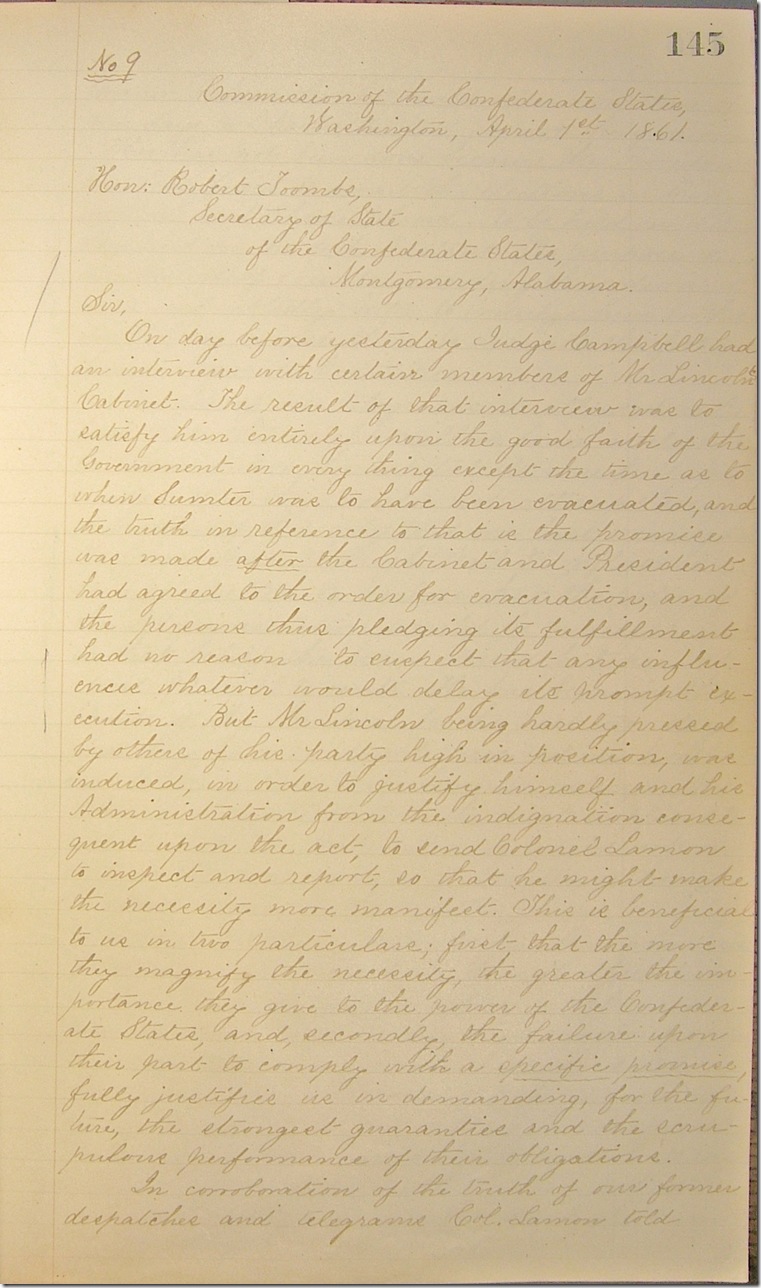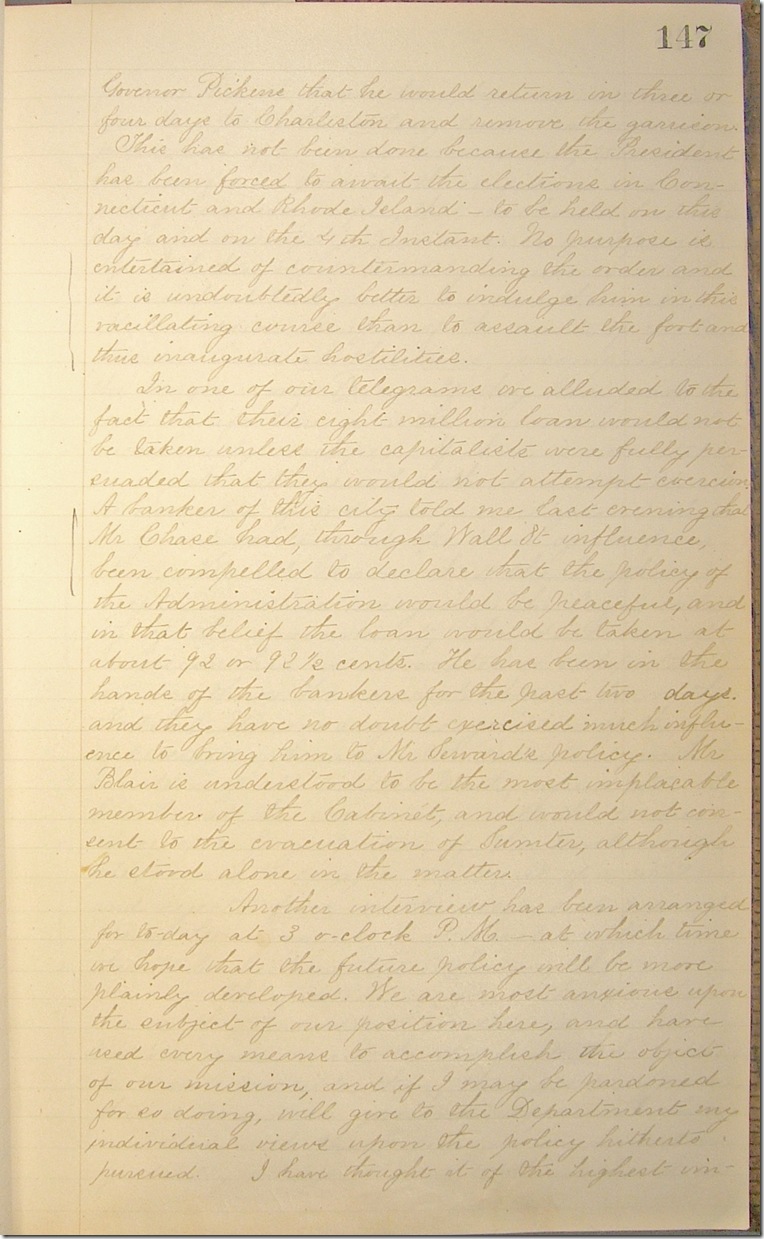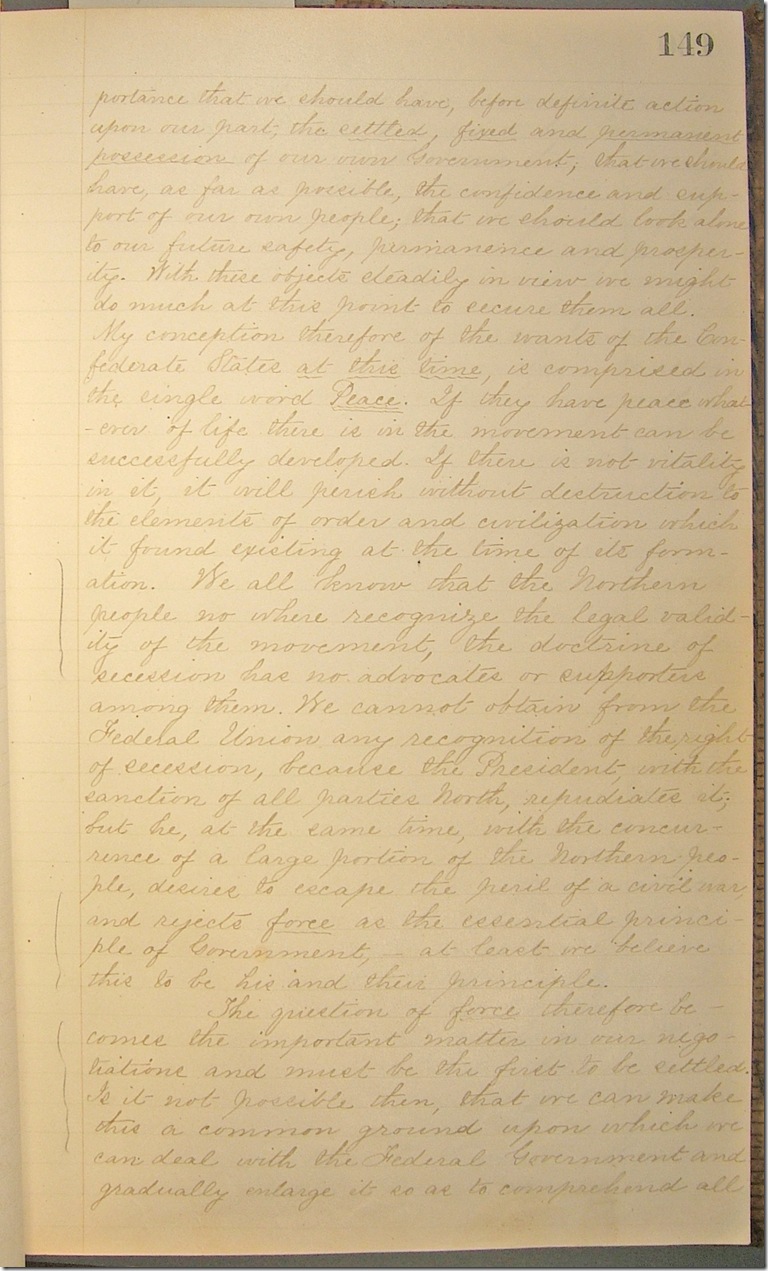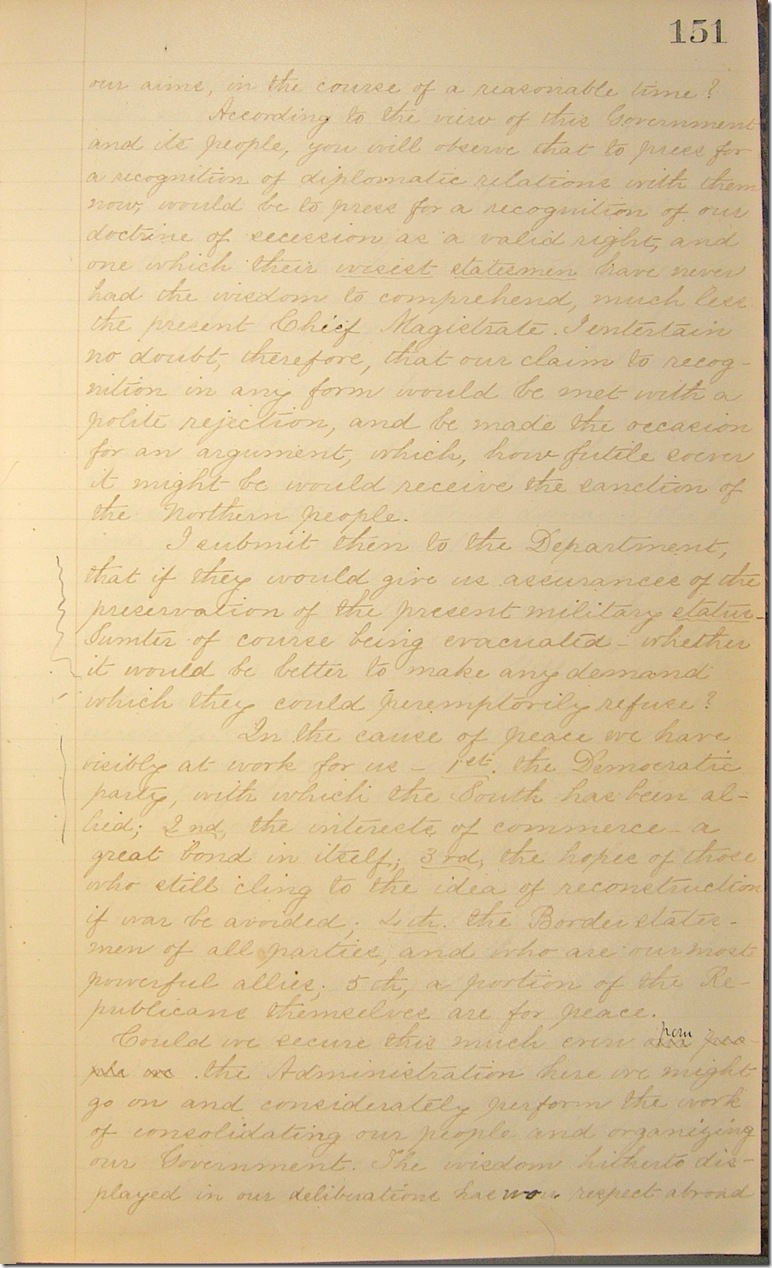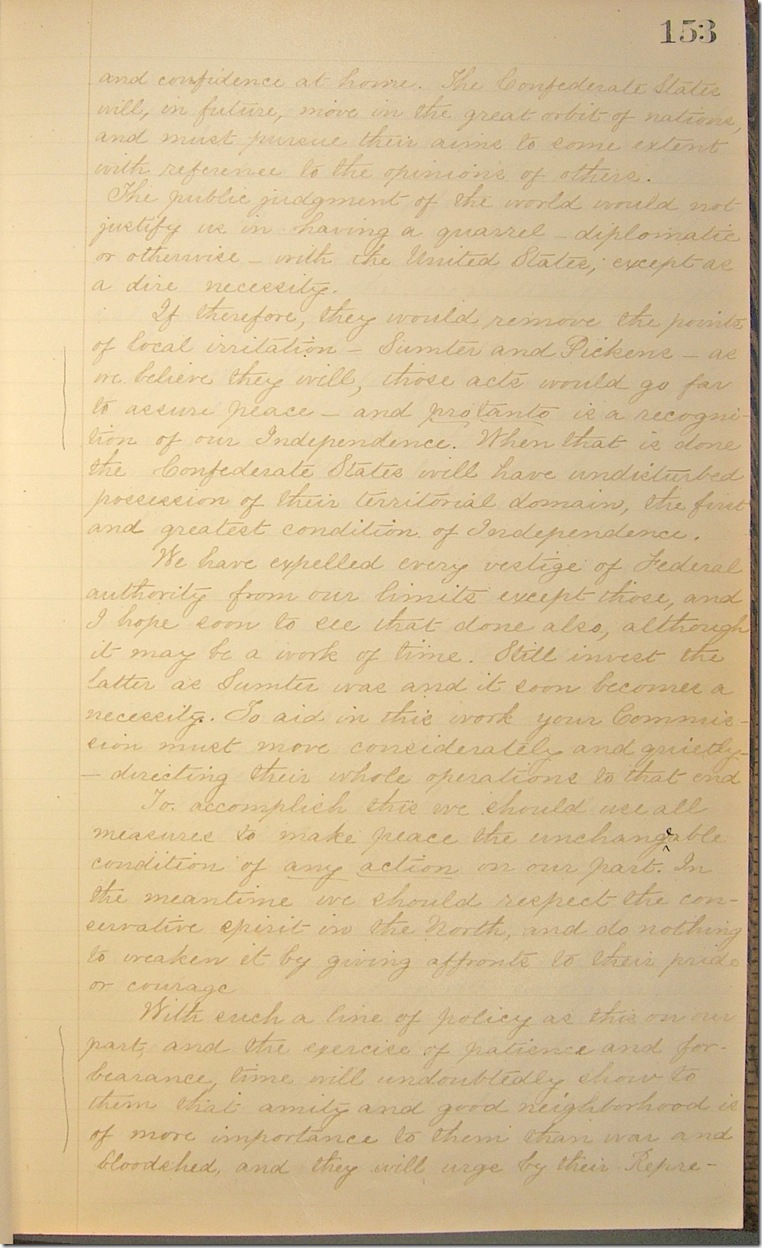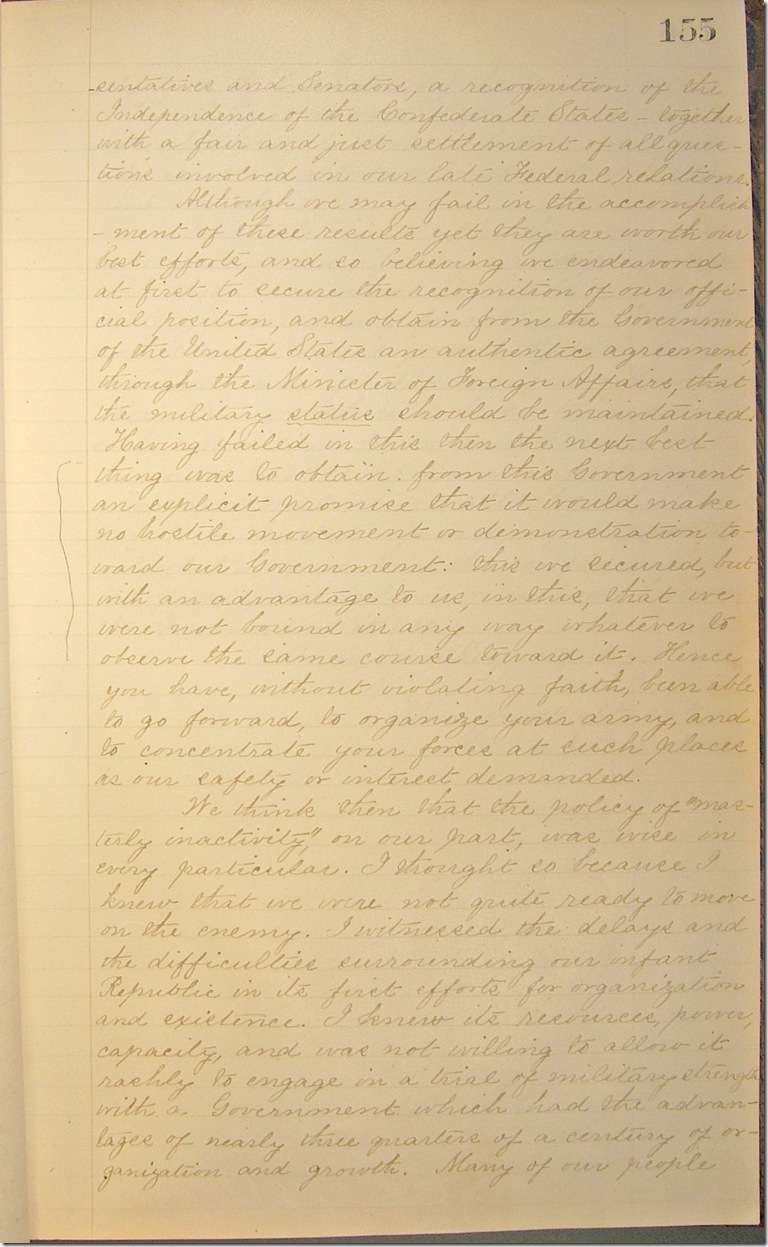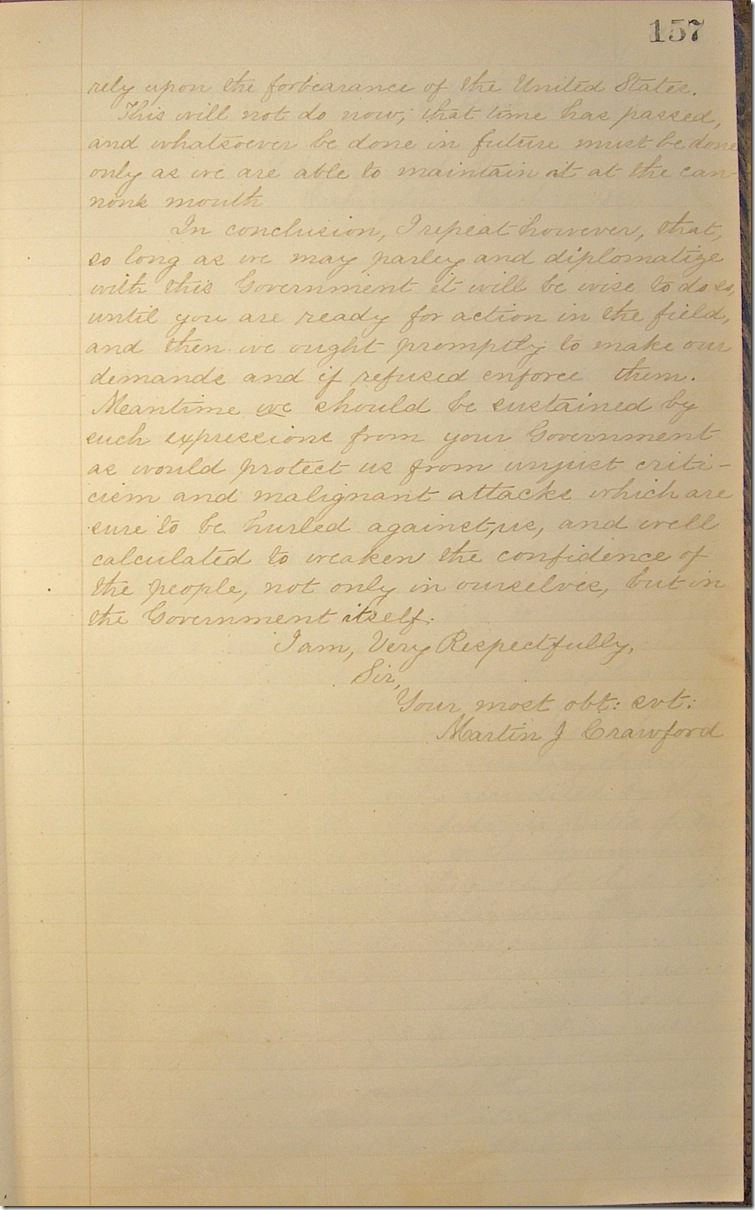During March and April 1861, after seven states had seceded and formed the Confederate States of America but before war broke out, Confederate Secretary of State Robert Toombs appointed Martin J. Crawford, John Forsyth, and A.B. Roman as Commissioners of the Confederate States to Washington, DC. Their purpose was to seek diplomatic recognition from the United States and negotiate peace—at least for a while. Central to the question of peace or war was whether the United States would continue to retain claim over federal forts located in the southern states that had seceded, including Fort Pickens in Florida and Fort Sumter in South Carolina. This item is transcribed from a letter book maintained by J.T. Pickett, secretary to the commissioners, containing copies of 72 letters, dispatches, and telegrams sent and received by the commissioners from the time of their appointment to the demand for the evacuation of Fort Sumter.
Transcript (excerpt):
No 9
Commission of the Confederate States
Washington, April 1st 1861.
Hon: Robert Toombs,
Secretary of State
of the Confederate States,
Montgomery, Alabama.
Sir,
[…]
I have thought it of the highest importance that we should have, before definite action upon our part, the settled, fixed and permanent possession of our own Government; that we should have, as far as possible, the confidence and support of our own people; that we should look alone to our future safety, permanence and prosperity. With these objects steadily in view we might do much at this point to secure them all. My conception therefore of the wants of the Confederate States at this time, is comprised in the single word Peace. If they have peace whatever of life there is in the movement can be successfully developed. If there is not vitality in it, it will perish without destruction to the elements of order and civilization which it found existing at the time of its formation. We all know that the Northern people no where recognize the legal validity of the movement, the doctrine of secession has no advocates or supporters among them. We cannot obtain from the Federal union any recognition of the right of secession, because the President, with the sanction of all parties North, repudiates it; but he, at the same time, with the concurrence of a large portion of the Northern people, desires to escape the peril of a civil war, and rejects force as the essential principle of Government,—at least we believe this to be his and their principle.
The question of force therefore becomes the important matter in our negotiations and must be the first to be settled. Is it not possible then, that we can make this a common ground upon which we can deal with the Federal Government and gradually enlarge it so as to comprehend all our aims, in the course of a reasonable time?
[…]
In the cause of peace we have visibly at work for us—1st, the Democratic party, with which the South has been allied; 2nd, the interests of commerce—a great bond in itself; 3rd, the hopes of those who still cling to the idea of reconstruction if war be avoided; 4th, The Border states, men of all parties, and who are our most powerful allies; 5th, a portion of the Republicans themselves are for peace.
[…]
We think then that the policy of “masterly inactivity,” on our part, was wise in every particular. I thought so because I knew that we were not quite ready to move on the enemy. I witnessed the delays and the difficulties surrounding our infant Republic in its first efforts for organization and existence. I knew its resources, power, capacity, and was not willing to allow it rashly to engage in a trial of military strength with a Government which had the advantages of nearly three quarters of a century of organization and growth. Many of our people rely upon the forbearance of the United States.
This will not do now; that time has passed, and whatsoever be done in future must be done only as we are able to maintain it at the cannon’s mouth.
[…]
I am, Very Respectfully,
Sir,
Your most obt: svt:
Martin J Crawford
Citation:Commissioners of the Confederate States of America to the Government of the United States, letter book.Washington, D.C., Feb 27-April 11, 1861.AMS 811/20
